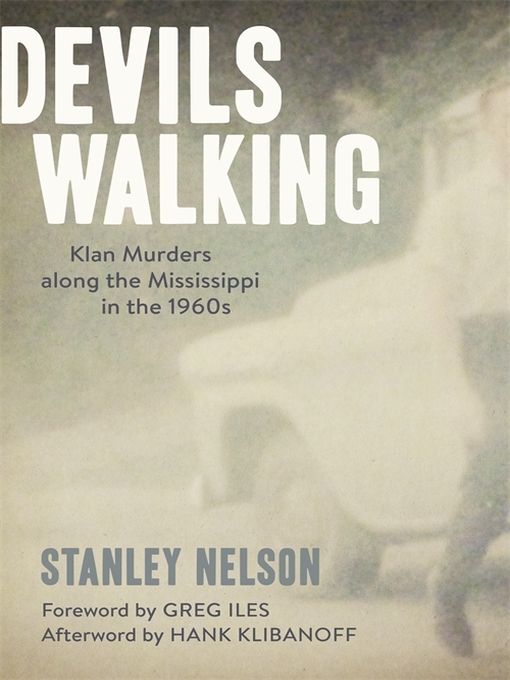After midnight on December 10, 1964, in Ferriday, Louisiana, African American Frank Morris awoke to the sound of breaking glass. Outside his home and shoe shop, standing behind the shattered window, Klansmen tossed a lit match inside the store, now doused in gasoline, and instantly set the building ablaze. A shotgun pointed to Morris's head blocked his escape from the flames. Four days later Morris died, though he managed in his last hours to describe his attackers to the FBI. Frank Morris's death was one of several Klan murders that terrorized residents of northeast Louisiana and Mississippi, as the perpetrators continued to elude prosecution during this brutal era in American history.
In Devils Walking: Klan Murders along the Mississippi in the 1960s, Pulitzer Prize finalist and journalist Stanley Nelson details his investigation—alongside renewed FBI attention—into these cold cases, as he uncovers the names of the Klan's key members as well as systemized corruption and coordinated deception by those charged with protecting all citizens.
Devils Walking recounts the little-known facts and haunting stories that came to light from Nelson's hundreds of interviews with both witnesses and suspects. His research points to the development of a particularly virulent local faction of the Klan who used terror and violence to stop integration and end the advancement of civil rights. Secretly led by the savage and cunning factory worker Red Glover, these Klansmen—a handpicked group that included local police officers and sheriff's deputies—discarded Klan robes for civilian clothes and formed the underground Silver Dollar Group, carrying a silver dollar as a sign of unity. Their eight known victims, mostly African American men, ranged in age from nineteen to sixty-seven and included one Klansman seeking redemption for his past actions.
Following the 2007 FBI reopening of unsolved civil rights–era cases, Nelson's articles in the Concordia Sentinel prompted the first grand jury hearing for these crimes. By unmasking those responsible for these atrocities and giving a voice to the victims' families, Devils Walking demonstrates the importance of confronting and addressing the traumatic legacy of racism.
- New eBook additions
- New eBook additions for Kids
- New eBook additions for Teens
- Most popular
- Most popular for Kids
- Most popular for Teens
- Available Now
- Available Now for Kids
- Available Now for Teens
- Book Club 2025-2026: Guaranteed Available : Karapu Pukapuka: Wātea Mārika 2025-2026
- Classic Literature Book Club : Guaranteed Available
- Travel Club 2025-2026: Guaranteed Available
- Reese's Pieces
- See all ebooks collections
- New eAudiobook additions
- New eAudiobook additions for Kids
- New eAudiobook additions for Teens
- Most popular eAudiobooks
- Most popular eAudiobooks for Kids
- Most popular eAudiobooks for Teens
- Available now on eAudio
- Available Now on eAudio for Kids
- Available Now on eAudio for Teens
- AudioBook Club 2025-2026: Guaranteed Available
- Classic "Reads" AudioBook Club : Guaranteed Available
- Children's AudioBook Club 2025-2026: Guaranteed Available
- See all audiobooks collections
- Ngā pukapuka i te reo Māori : Books in the Māori Language
- Tusi Samoa : Samoan Books
- Ngaahi tohi ʻi he lea faka-Tongá : Books in Tongan
- किताबें हिंदी में Kitaaben hindee mein : Books in Hindi
- 中文书籍 Zhōngwén shūjí : Books in Chinese
- 中文杂志 Zhōngwén zázhì : Magazines in Chinese
- Buugaag af-soomaali ku qoran : Books in Somali
- Livres en français : Books in French
- Magazines en français : Magazines in French
- Bücher in deutscher Sprache : Books in German
- Zeitschriften in deutscher Sprache : Magazines in German
- Mga libro ma Filipino : Books in Tagalog
- Boeke in Afrikaans : Books in Afrikaans
- See all language collections collections

